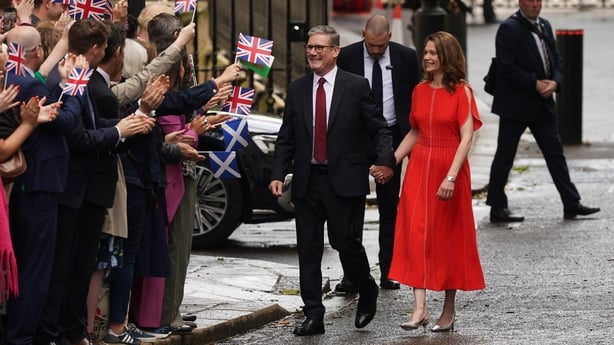The Labour politician Roy Jenkins is said to have compared Tony Blair's approach to power ahead of the 1997 Labour landslide as akin to a museum curator carrying a Ming vase across a marble floor.
It’s little wonder the analogy has been repeated a lot in this election campaign as Labour leader Keir Starmer sought to ensure that he did nothing to upset polling which put his party consistently ahead.
He was helped of course by the fact that the Conservative Party seemed determined to smash several vases with controversies surrounding everything from D-Day commemorations to betting on the election date.
But now the polls have been proven right and Mr Starmer finds himself ensconced in 10 Downing Street, the work begins to define his premiership and his vision for the future.
He has already struck a cautious note, aware as he is of the difficulties ahead.
"We're going to have to do really tough things to move the country forward," he told voters days before the election.
"There is no magic wand." In his first address as Prime Minister he doubled down on that warning, saying that changes would take time, vowing that he needed to start by rebuilding faith in politics.
He will also need to start by getting the UK out of the economic rut in which it finds itself.
Neither task will be easy.
Britain’s post-pandemic recovery has lagged severely behind many of the world's major economies, with an increasing sense of the strain on public services such as the NHS.
The cost-of-living crisis as well as a housing shortage and weak business investment have all added to a sense of "broken Britain".
Britain’s economy is expected to grow by less than 1% this year, making it understandable that this Labour victory has been greeted by some with less optimism than that of 1997 when the UK economy was in a far stronger position.
The world’s sixth largest economy, Britain has taken the shocks of austerity measures, the Brexit referendum and its subsequent fallout, as well as Liz Truss’s short-lived economic policies.

Added to that are the global influences the rest of the world is dealing with, including the war in Ukraine.
Having promised during the campaign that there would be no major tax increases and no major borrowing, Labour has little room for manoeuvre in terms of immediate economic options.
But time and again during the campaign Labour promised change, and it is change that people desperately want.
How long a beleaguered electorate is prepared to wait for that change will be yet another challenge for Keir Starmer.
For now at least, Keir Starmer can enjoy something of a political honeymoon as he marks lots of firsts.
The first return to parliament as Prime Minister, his first Prime Ministers Questions, his first engagements on the international stage.
But it is likely to be a short-lived honeymoon.
Having balanced that Ming vase very well so far, it is unlikely Mr Starmer will be able to keep it secure forever.




